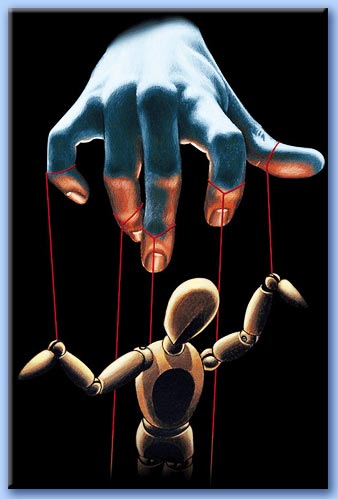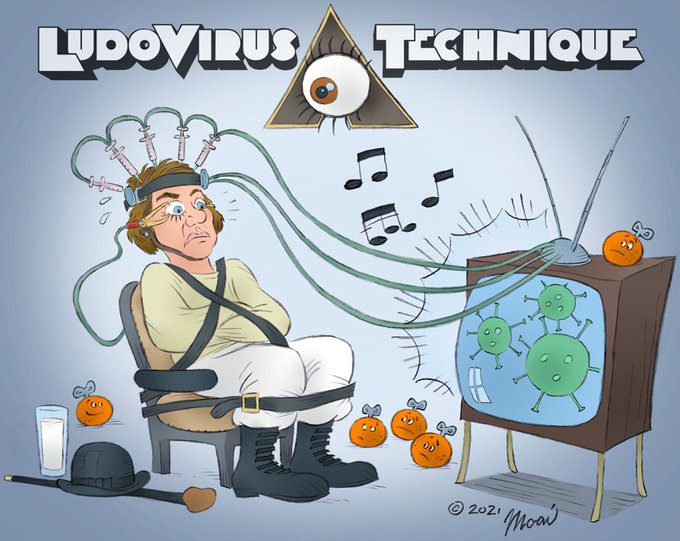10 strategies of manipulation by the media: do you think they are also using them in Italy?

Exaggerated newspaper headlines, fake information, wrong numbers, images taken from video games or other contexts. It has always happened, but in the last two years the classic media manipulations have become much more evident, pressing, and even more identifiable. It is no coincidence that users who followed TV and newspapers have drastically decreased. What the manipulators of collective thought may not have calculated is that people can be fooled for a long, long time. But not forever. Upon the awakening of so many people we are witnessing, to their newfound ability to think with their heads and look with their eyes, we dedicate this article, which we would like to call "Old Manipulation Techniques".
Historically, the media have proven highly effective in shaping public opinion. Thanks to the manipulation and propaganda of the media, social movements have been created or destroyed, wars justified, financial crises have been minimized, preferential ideological currents spurred. The media have shaped reality at will within the collective psyche.
But how to identify the most common strategies to understand these psychosocial tools in which we certainly participate? Encouraging stupidity, promoting guilt, promoting distraction or building artificial problems and then magically solving them, are just some of these tactics, which we are going to illustrate. Try to recognize them also applied in Italy.
1. The strategy of distraction The primary element of social control is the distraction strategy which is to divert the attention of the public from important issues and changes determined by political and economic elites, with the technique of bombing with continuous distractions and information. meaningless. The distraction strategy is also essential to prevent public interest in essential knowledge in the area of science, economics, psychology, neurobiology and cybernetics. “Keeping public attention diverted from real social problems by enthralling it with issues of no real importance. Keep the audience busy, engaged, engaged, with no time to think. (quote from the text Silent Weapons for Quiet War). "
2. Create Problems, Then Offer Solutions This method is also called problem-reaction-solution. Create a problem, a "situation" to cause a reaction in the audience, make it the main step that you want to accept. For example: let urban violence unfold and intensify, so that the public is oriented in favor of the laws and security policies that will also limit their freedom in the future. Or: it creates an economic crisis such that the abolition of social rights and the dismantling of public services are accepted as inevitable.
3. The gradual strategy: it allows the acceptance of unacceptable measures, just apply it gradually, with the dropper, for consecutive years. Thus it was that radically new socio-economic conditions (neoliberalism) were imposed in the 1980s and 1990s: the minimum state, privatizations, precariousness, flexibility, massive unemployment, wages that do not guarantee a decent income, many changes that would have produced a revolution if they had been applied once. The well-known story of the boiled frog.
4. The deferral strategy. Another way to accept an unpopular decision is to present it as "painful and necessary", gaining "momentary" public acceptance, to create the way for future application. It is easier to accept a future sacrifice than an immediate massacre (from a pandemic virus, for example). First, because the effort is not used immediately. Therefore, because the public, the masses, always have a tendency to naively expect that "everything will be better tomorrow" ( everything will be fine, we will come out better ) and that the sacrifice required today can be avoided in the future. This gives the audience more time to get used to the idea of change and accept it with resignation when the time comes.
5. Address the audience as you would address a child. Most advertising in general uses speeches, arguments, people and especially the intonation of children, with protective tones, as if the viewer were a child or a mentally deficient child. The more you try to deceive the viewer's gaze, the more it tends to adopt an infantilizing tone. Why? "If you go to a person as if he were 12 years of age or younger, then, due to suggestion, he tends with some probability to an even non-critical response or reaction like that of a person of 12 or less. (For example: " I am proud of you, the Italians have been vaccinated en masse, they have been good and reasonable and deserving of praise. As a reward they will be taken off the mask outdoors. If they continue to be good, one day they will be able to also remove indoors ").
6. Use the emotional side more than the reasoning. Making use of the emotional aspect is a classic technique to cause a short circuit of rational analysis, and finally of the critical sense of the individual. Furthermore, the use of the emotional register serves to open the door to the unconscious for the implantation or grafting of ideas, desires, fears and anxieties, compulsions, or inducing behaviors that one wants to manipulate. ( Hate the unvaccinated, they are the danger, the cause of everything, not the state that cares and protects you ).
7. Keep the audience ignorant and mediocrity. Making the public unable to understand the technologies and methods used for control and enslavement. "The quality of education given to the lower social classes must be that of the poor and as mediocre as possible so that the gap of ignorance between the lower and upper classes is and remains impossible for the lower classes to reach (see" Silent weapons for a quiet war). "
8. Encourage the public to indulge in mediocrity. Encourage the public to believe that it is fashionable to be stupid, vulgar and ignorant. ( I think it is useless to discuss the quality of our television programs, reality shows in the first place ).
9. Strengthening of self-blame. Let individuals blame themselves for their misfortune, believe that the cause of failure is their low intelligence, lack of skill or insufficient effort. Therefore, instead of rebelling against the economic system, the individual devalues himself and induces a sense of guilt, which produces depression, one of the effects of which is to inhibit any action. And, without action, there is no revolution. ( You don't get vaccinated enough, you don't work enough, you evade taxes, you don't know how to reconvert your activities to keep up with the changing times … )
10. Get to know people better than they know themselves. Over the past 50 years, advances in accelerated science have generated a growing gap between public knowledge and that owned and managed by the ruling elites. Thanks to biology, neurobiology and applied psychology, the "system" has enjoyed a sophisticated understanding of human beings, both physically and psychologically. The system has come to know the common man better than he knows himself. This means that, in most cases, the system exerts greater control and great power over individuals, greater than that of individuals over themselves.
How to defend yourself? We refer you to our article yesterday with some useful advice:
https://www.demenzemedicinagenerale.net/pdf/14-10-strategies-of-manipulation.pdf

Thanks to our Telegram channel you can stay updated on the publication of new articles of Economic Scenarios.
Article 10 strategies of manipulation by the media: do you think they are also being used in Italy? comes from ScenariEconomici.it .
This is a machine translation of a post published on Scenari Economici at the URL https://scenarieconomici.it/10-strategie-di-manipolazione-da-parte-dei-media-vi-pare-che-le-stiano-usando-anche-in-italia/ on Sun, 20 Mar 2022 14:00:15 +0000.



